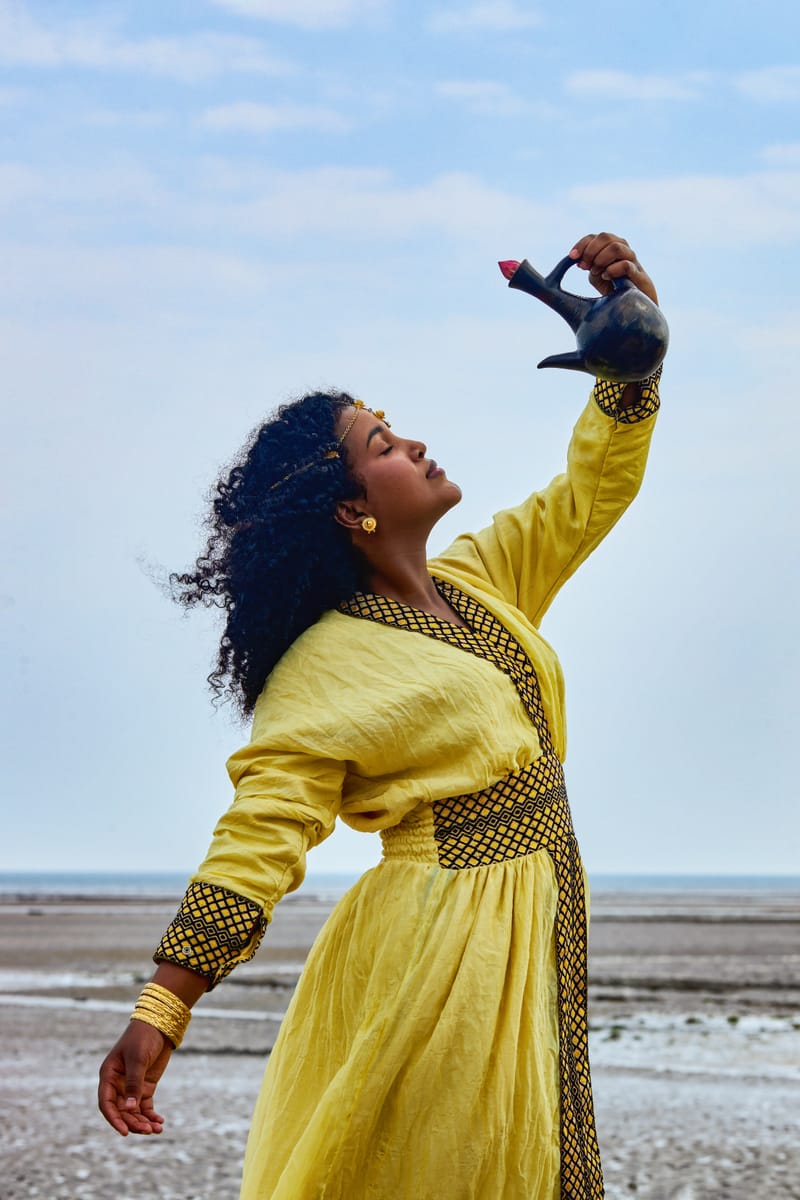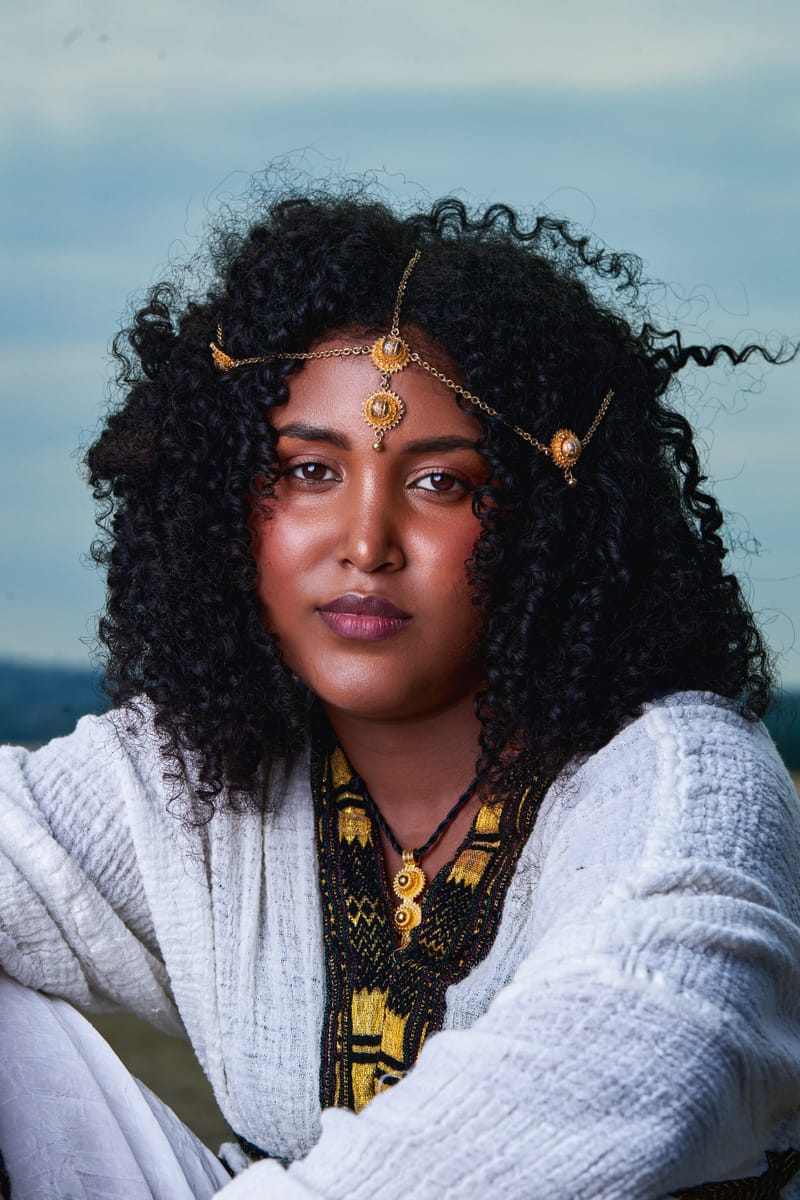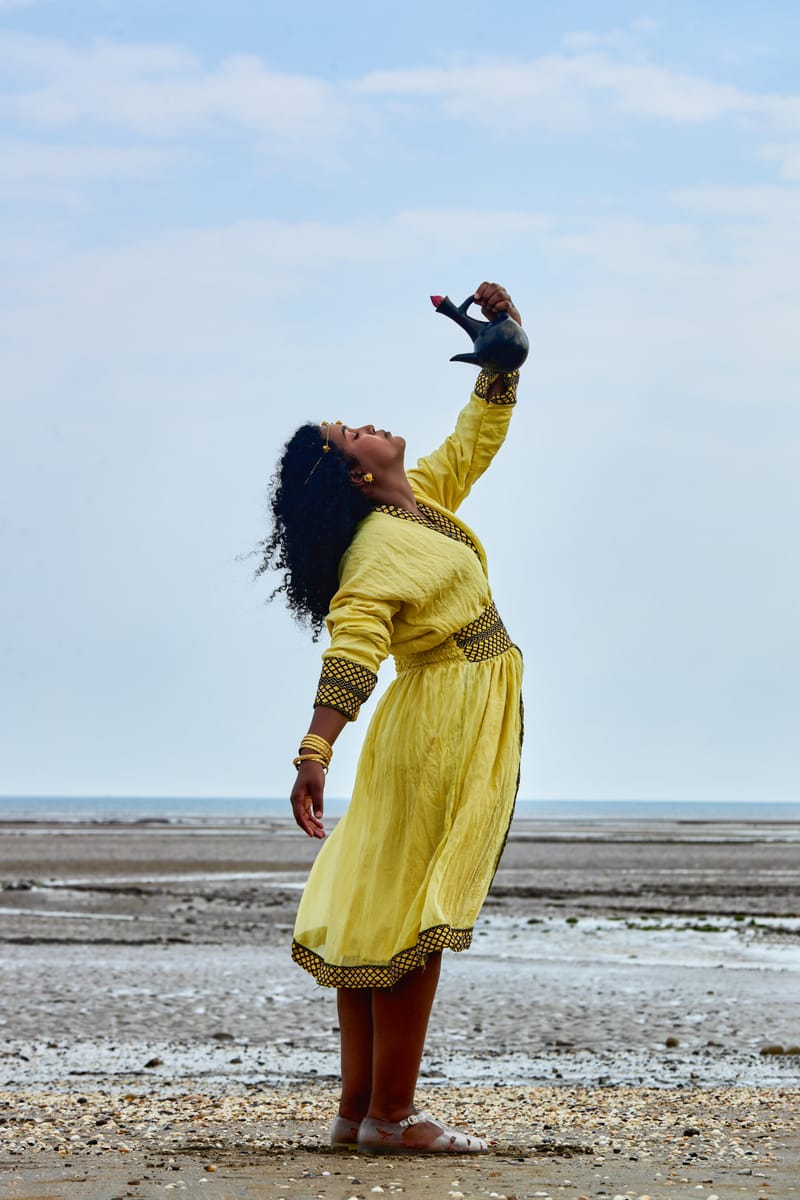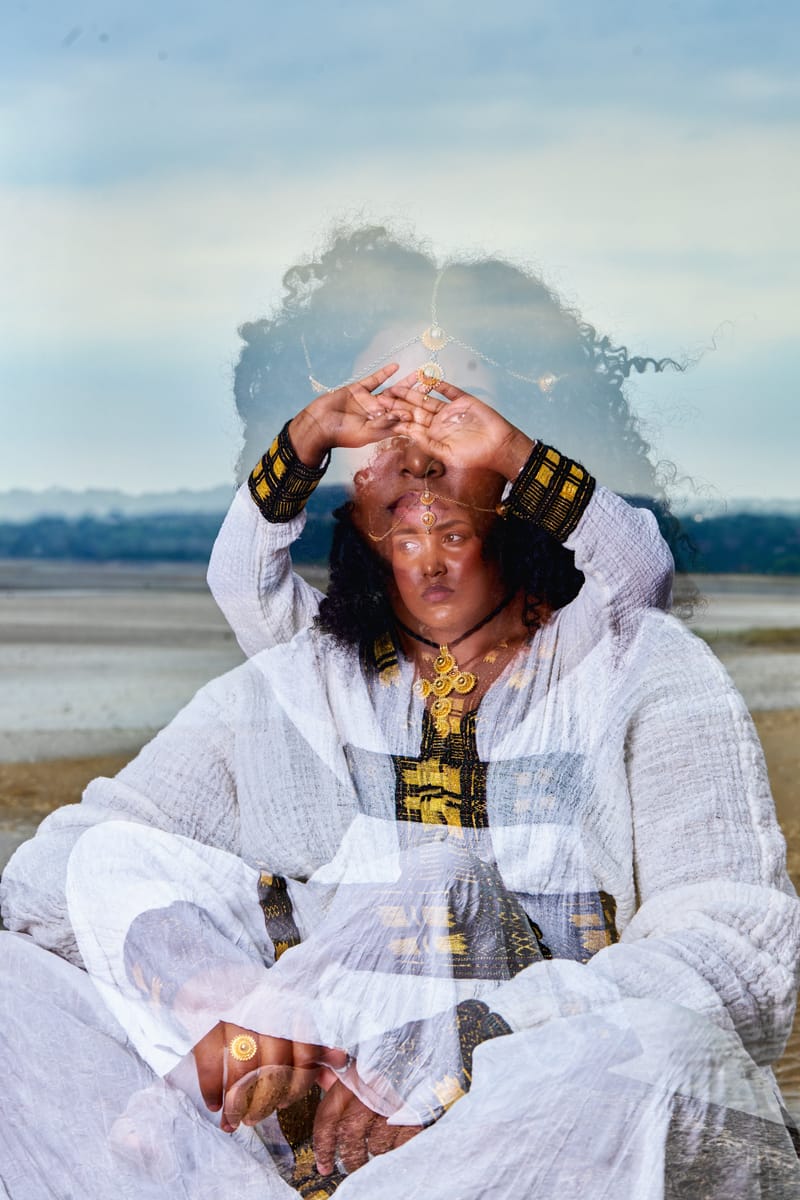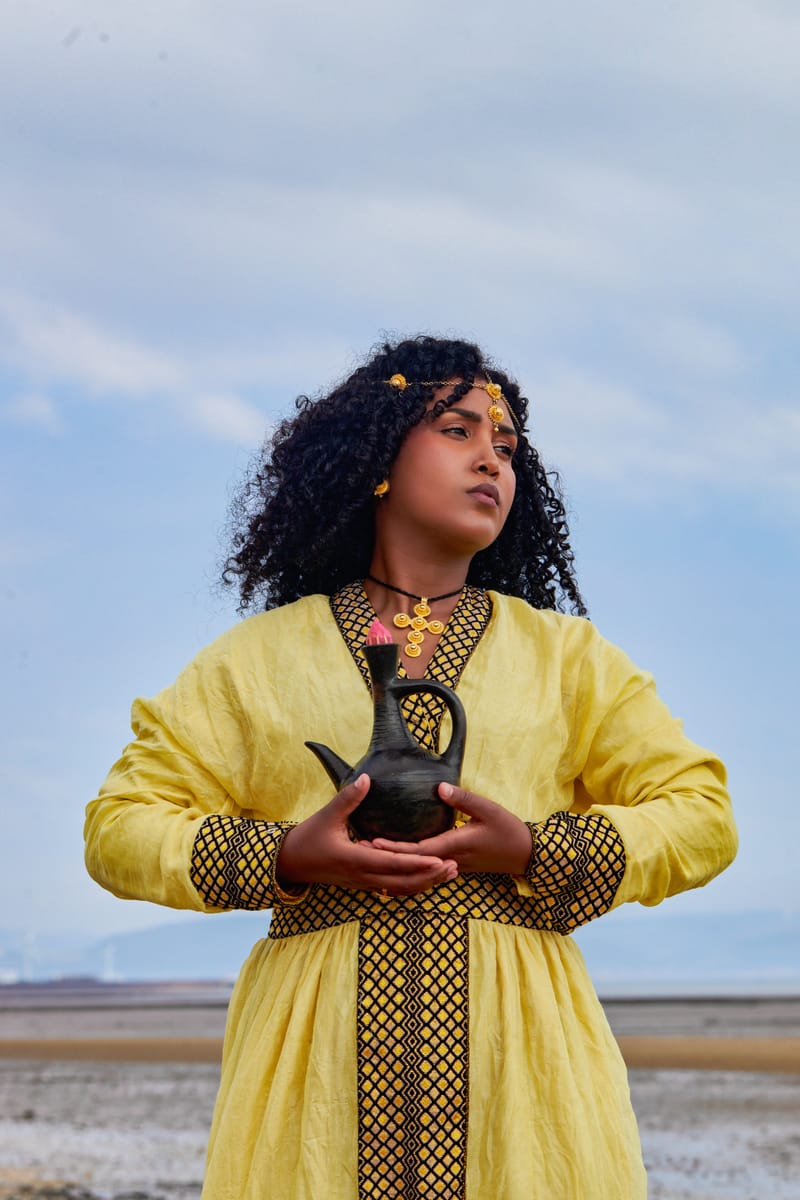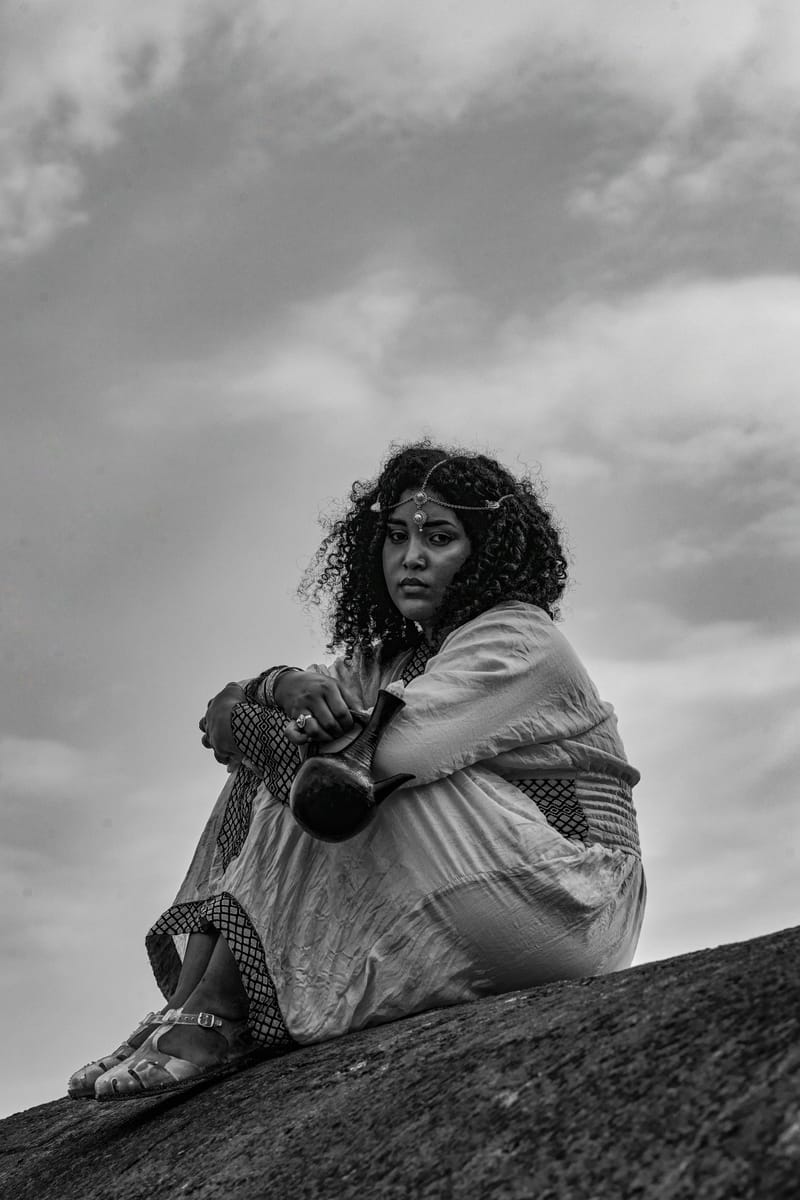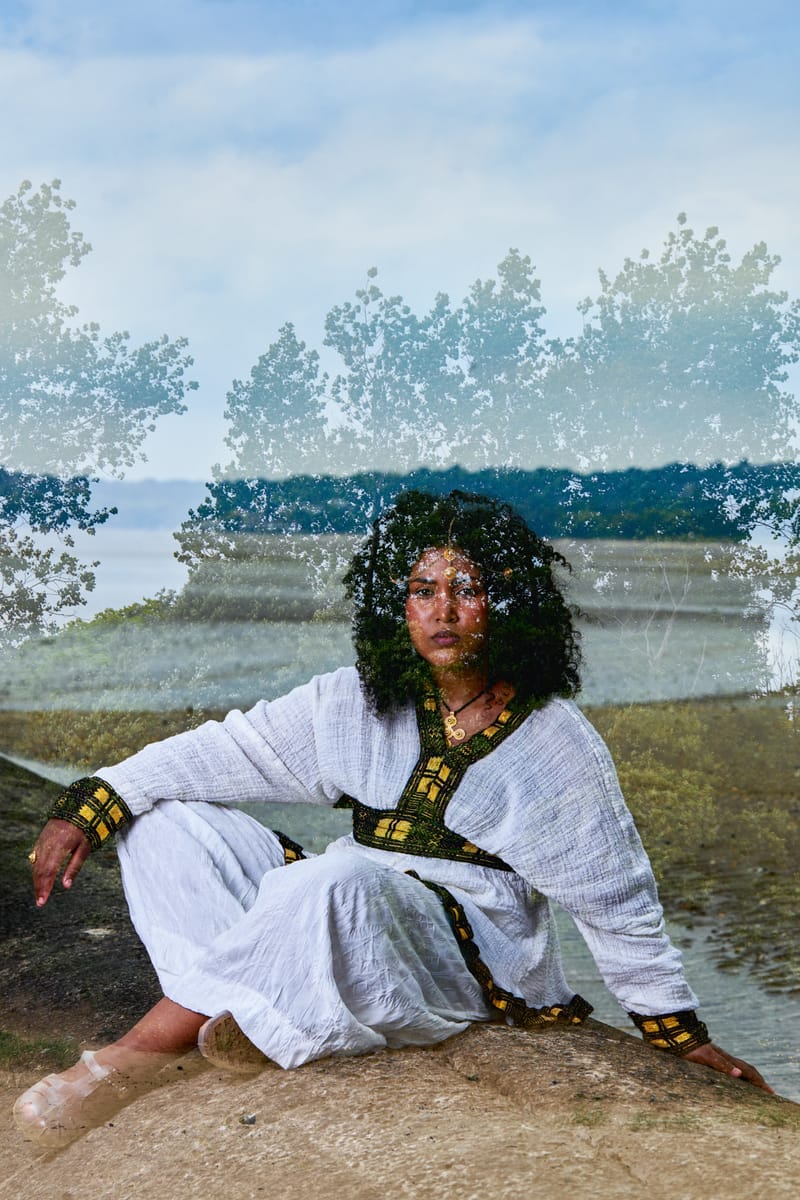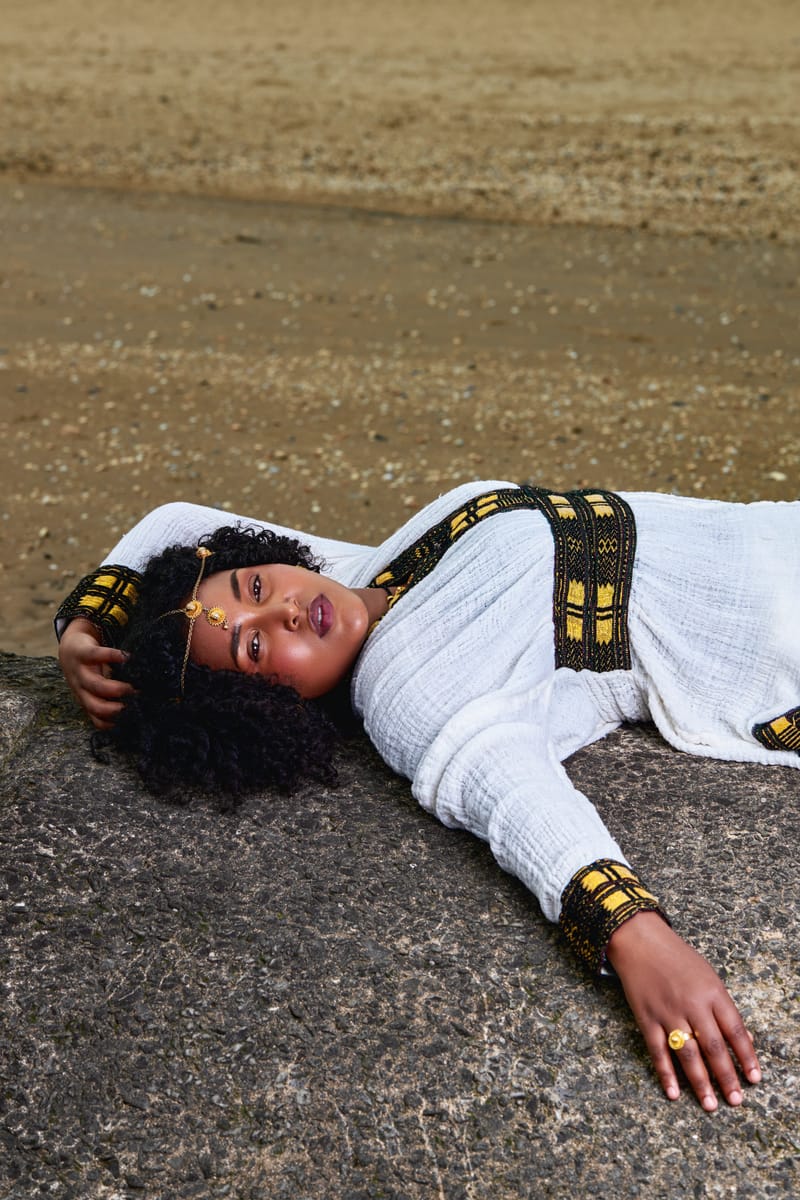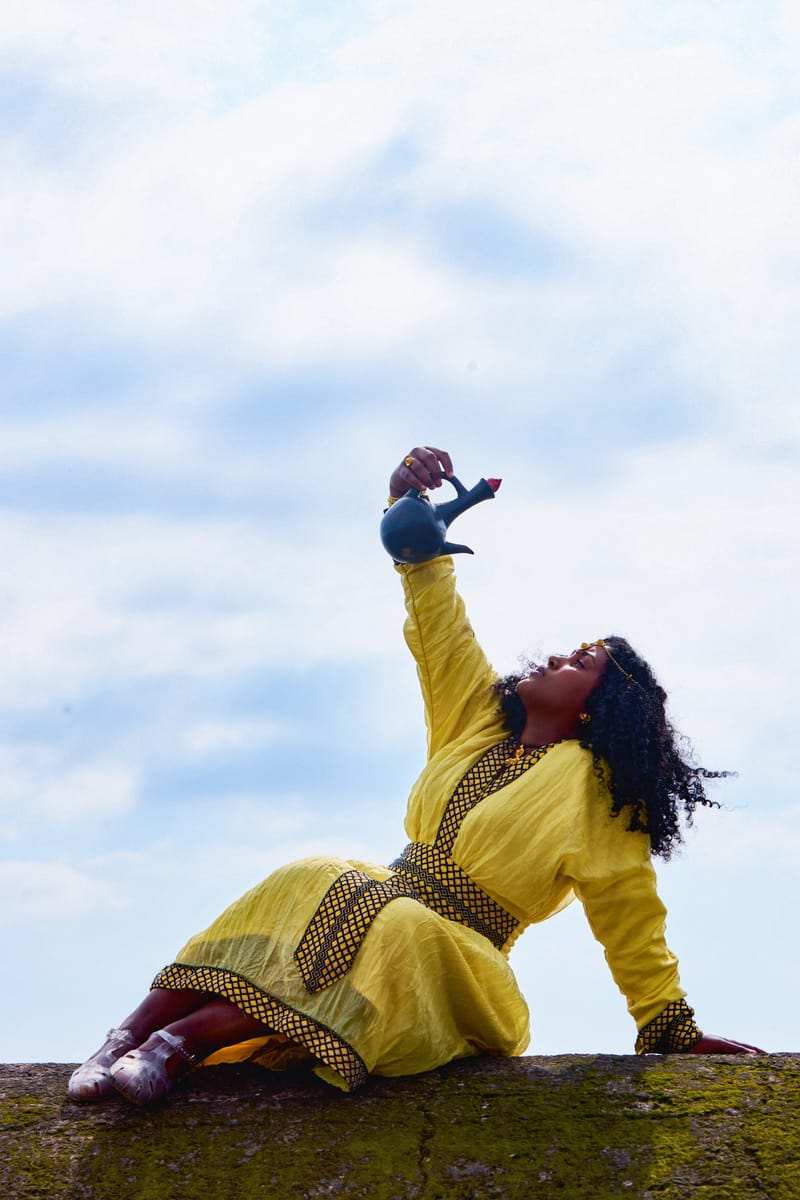Storm: Makda’s Story of Triumph and Tradition
Photography & Story / Abayomi Shogbade
Featuring / Makda (@its_makdaa)
Storm: Makda’s Story of Triumph and Tradition
“Storm”: Makda’s Story of Triumph and Tradition is an evocative exploration of the metaphorical storms that have molded the multicultural environment of the United Kingdom. Makda, an Eritrean woman living in the United Kingdom, is the subject of this photo series. She stands for the fortitude and tenacity of those who have been displaced from their homes due to turbulent circumstances like war, political upheaval, or the pursuit of better possibilities. Dressed in a traditional zuria and holding a jebena, Makda’s portraits tell a compelling story of heritage, survival, and the reconstruction of identity in a foreign land. This project aligns with the theme “Storm,” using the imagery of cultural and personal upheaval to explore how diverse communities have found refuge and built new lives far from their origins. As a self-taught fine art and portrait photographer from Nigeria, currently based in Swansea, United Kingdom, my work is driven by a passion for storytelling through visual narratives. I strive to capture the essence of human experiences, particularly those that resonate with themes of resilience and cultural identity. “Storm: Makda’s Story of Triumph and Tradition” is a deeply personal project that reflects my interest in documenting the journeys of individuals who have weathered life’s storms and emerged with stories of strength and perseverance. The zuria is an ankle-length dress adorned with intricate designs, typically worn by Tigrinya women during significant events such as holidays, weddings, or parties. It is accompanied by a netsela, a white, scarf-like accessory worn around the shoulders and head. This attire is a symbol of cultural identity and pride, representing the traditions that Makda and many others continue to uphold despite the challenges of displacement. The jebena is a traditional flask made of pottery, commonly used in Eritrea, Ethiopia, and Sudan to brew coffee, known as “bun” or “bunna.” It is a central element of social gatherings, representing community, warmth, and the comforts of home. In this series, the Jebena serves as a poignant reminder of the cultural practices that survive and thrive even in the face of significant upheaval. The metaphor of the storm in this series represents the myriad forces, both natural and man-made that have driven people like Makda to seek refuge in new lands. Whether fleeing conflict, escaping political oppression, or searching for a better life, these storms have scattered communities across the globe, bringing rich cultural diversity to the United Kingdom. “Storm: Makda’s Story of Triumph and Tradition” not only captures the turbulence and displacement that these individuals have experienced but also celebrates their resilience and the cultural heritage they carry with them. This project is a testament to the enduring strength of the human spirit in the face of adversity. Storm: Makda’s Story of Triumph and Tradition is a visual narrative that seeks to highlight the resilience of those who have been carried to new lands by the storms of life. By focusing on the cultural symbols of the Zuria and Jebena, this project underscores the importance of heritage and identity in the face of displacement. This series is ongoing, as I continue to encounter new subjects whose stories of migration and cultural preservation contribute to this broader narrative. Whenever I meet these individuals, I engage them in conversations about their backgrounds, traditions, and the elements that hold significant meaning in their cultures. These conversations guide the creation of each photograph, using culturally significant props to visually express their stories and identities.
